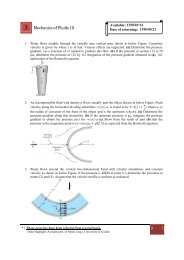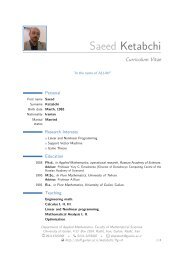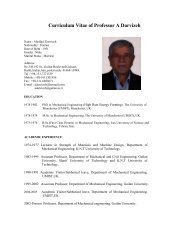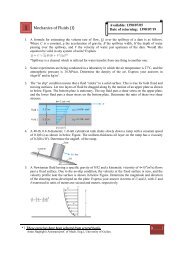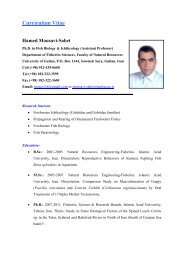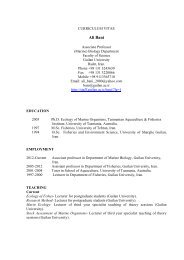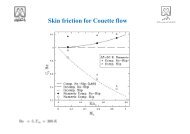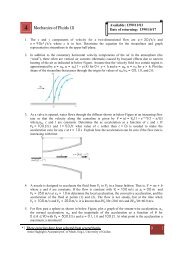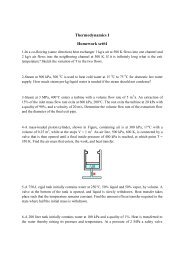Medical Tourism in Developing Countries
Medical Tourism in Developing Countries
Medical Tourism in Developing Countries
- No tags were found...
Create successful ePaper yourself
Turn your PDF publications into a flip-book with our unique Google optimized e-Paper software.
174 ● <strong>Medical</strong> <strong>Tourism</strong> <strong>in</strong> Develop<strong>in</strong>g <strong>Countries</strong>that is aware of health matters and pays attention to hygiene entails rudimentaryeducation. Economic development <strong>in</strong>creases the range and breadthof people with access to education (and education results <strong>in</strong> economicdevelopment, as George Psacharopoulos’s research has shown 15 ). More educatedand aware people will control those diseases that are transmittedthrough physical contact by, for example, adopt<strong>in</strong>g higher standards ofcleanl<strong>in</strong>ess. Not only will they wash their hands more frequently, but theywill also be able to read the directions for chemical repellants that controlmosquitoes, rats, and worms. Educat<strong>in</strong>g mothers about contam<strong>in</strong>ation hasbeen shown to contribute positively to family health, and improved nutritionhas been shown to make people less prone to disease. 16Another type of education is also crucial <strong>in</strong> combat<strong>in</strong>g illness, namelymedical and pharmaceutical research that produces new cures and technologies.With development, the conditions for such research are improved.Together, these positive aspects of economic development on health havebrought about longer life spans, eradication of diseases, decreased <strong>in</strong>fantmortality rates, improved food <strong>in</strong>take, and a healthier workforce. Althougheconomic progress br<strong>in</strong>gs concomitant health concerns, as noted above, thenet positive benefit is undeniable.Improvements <strong>in</strong> Health Care Lead to Economic DevelopmentThe causal relationship between economic growth and health improvementsdescribed above requires policy to focus on growth, and health benefits willtrickle down to the population at large. Numerous scholars have argued thatthe causality is <strong>in</strong> fact reversed, that policy should <strong>in</strong>stead focus on theprovision of health at the micro level. 17 In a nutshell, they argue thatimprovements <strong>in</strong> health care result <strong>in</strong> the creation of human capital, that <strong>in</strong>turn is conducive to economic growth. World Bank’s Ul Haq argues thatmaximiz<strong>in</strong>g human welfare (<strong>in</strong>clud<strong>in</strong>g health), will trickle up and <strong>in</strong>creasethe GDP (rather than maximize GDP and wait for the trickle-down effecton health). 18 A RAND study stated that health equals wealth, not just thatwealth leads to health. 19 Under the auspices of WHO, Jeffrey Sachs led theCommission on Macroeconomics and Health to promote “health as goodeconomics,” <strong>in</strong> other words, it makes economic sense to <strong>in</strong>vest <strong>in</strong> health. 20F<strong>in</strong>ally, economists David Bloom and David Cann<strong>in</strong>g argue that althoughprevious studies of the benefits of vacc<strong>in</strong>ations focused on the cost of theprogram per life that is saved, the focus should be on how health (fromwidespread vacc<strong>in</strong>ation) <strong>in</strong>creases <strong>in</strong>come and wealth. 21On what grounds do these scholars argue that health stimulates economicgrowth? Improved health equals higher life expectancy as people have



